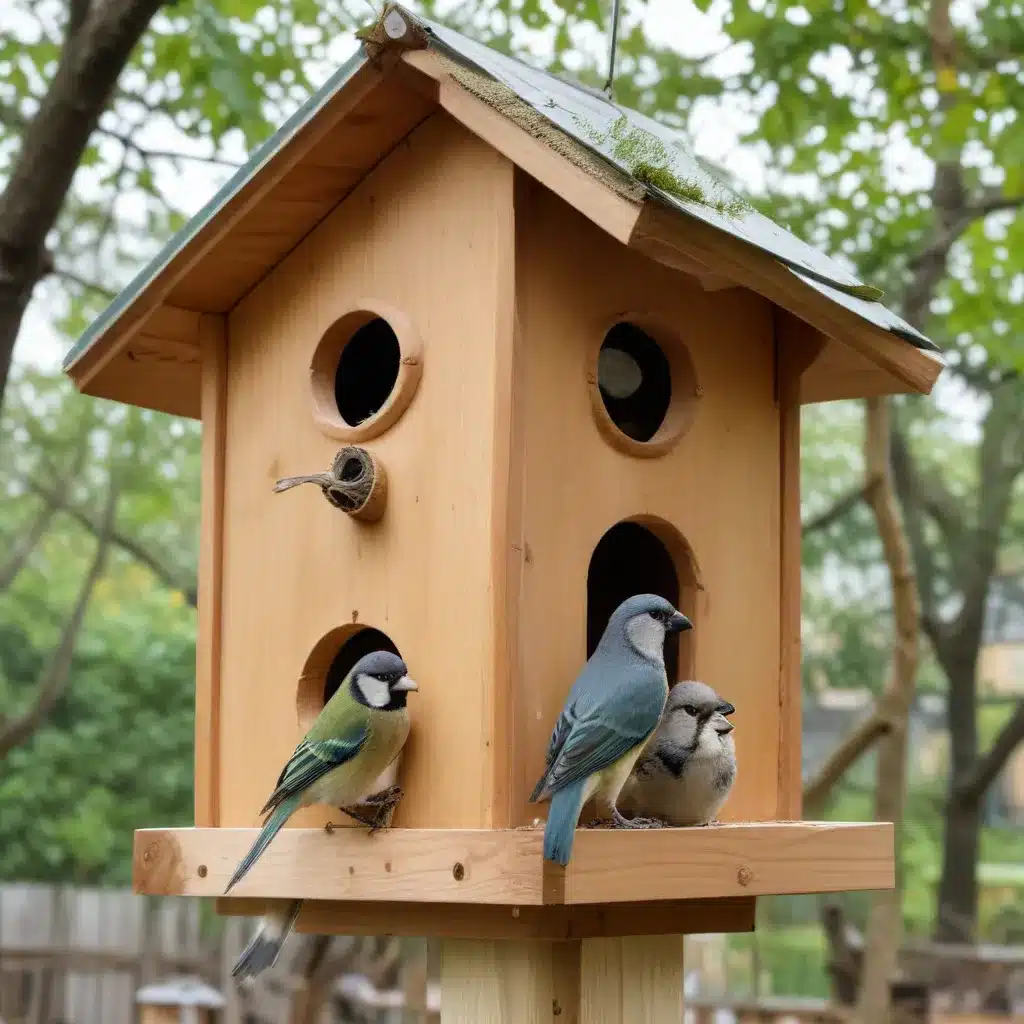
As an experienced avian caretaker and expert in the field of bird species, breeding, care, and habitat management, I understand the crucial importance of maintaining a clean and hygienic aviary environment for the health and well-being of our feathered friends. In this comprehensive guide, we’ll explore the essential steps to create a safe, enriching, and meticulously maintained aviary that supports the unique needs of our avian companions.
Aviary Maintenance
Avian Habitat Needs
Providing a clean and well-ventilated environment is paramount for the overall health and happiness of our birds. Cleanliness in the aviary is not just a matter of aesthetics, but a critical factor in preventing the spread of disease and ensuring the longevity of our feathered residents. Regular deep cleaning, disinfection, and proper waste management are essential to maintaining a hygienic aviary.
Adequate ventilation is equally important, as it helps to regulate temperature, humidity, and air circulation, which can significantly impact the well-being of our birds. Proper airflow not only promotes respiratory health but also aids in the dissipation of odors and the prevention of bacterial growth.
Birdhouse Design
The structural elements of the birdhouse play a crucial role in facilitating effective cleaning and maintaining a hygienic environment. Opt for materials that are easy to clean and disinfect, such as stainless steel, tempered glass, or high-quality plastics. Smooth surfaces and rounded corners can minimize the accumulation of dirt and make the cleaning process more efficient.
Strategically placing the birdhouse can also contribute to its overall cleanliness. Consider factors such as access to natural light, proximity to potential contaminants, and the ease of regular maintenance. Positioning the aviary in a well-ventilated area and away from high-traffic zones can further enhance the hygiene and comfort of your feathered residents.
Avian Hygiene
Waste Management
Proper waste management is a fundamental aspect of maintaining a clean and hygienic aviary. Timely removal and disposal of bird droppings are essential to prevent the buildup of bacteria, odors, and the potential spread of diseases. Establish a regular cleaning schedule and utilize appropriate cleaning tools and disinfectants to ensure thorough and effective waste removal.
Perch cleaning is another crucial step in maintaining avian hygiene. Birds spend a significant amount of time on their perches, and these surfaces can accumulate a variety of contaminants, including dried droppings, feather debris, and even bacterial growth. Regularly cleaning and disinfecting the perches can help to maintain a healthy and hygienic environment for your birds.
Feather Health
Providing ample opportunities for bathing and preening is essential for the overall health and well-being of our feathered friends. Offer a shallow water bath or misting system to allow your birds to engage in their natural grooming behaviors, which not only keep their feathers in pristine condition but also contribute to their overall hygiene.
Encouraging preening is also crucial, as it helps birds maintain the integrity of their plumage and distribute essential oils that keep their feathers in top condition. Provide appropriate perches, nesting materials, and enrichment items that promote natural preening behaviors.
Pest Control
Common Aviary Pests
Vigilance is key when it comes to controlling pests in the aviary. Common aviary pests include mites, insects, rodents, and even predatory birds or small mammals. These unwanted visitors can pose a significant threat to the health and safety of our avian companions, as they can transmit diseases, damage property, and even directly harm the birds.
Implementing proactive measures to prevent and manage these pests is crucial for maintaining a clean and hygienic aviary environment.
Preventative Measures
Regularly disinfecting the aviary, using appropriate insecticides, and implementing physical barriers can be effective in deterring and controlling pests. Modifying the habitat to eliminate potential breeding grounds and food sources can also contribute to a pest-free environment.
Staying informed about the latest pest control methods, consulting with veterinary professionals, and incorporating eco-friendly solutions can help create a safe and sustainable aviary that prioritizes the well-being of our feathered residents.
Promoting Bird Wellness
Enrichment Strategies
Maintaining a clean and hygienic aviary is not just about physical cleanliness; it also involves providing a stimulating and enriching environment for our birds. Offering a variety of foraging opportunities, such as hidden treats, rotating food sources, and puzzle feeders, can encourage natural behaviors and prevent boredom.
Incorporating interactive toys, perches, and nesting materials can also contribute to the overall well-being of our avian companions, as they promote physical activity, cognitive stimulation, and the expression of instinctual behaviors.
Monitoring Bird Health
Closely observing our birds and being attuned to any signs of illness or distress is crucial for maintaining their overall health and well-being. Familiarize yourself with the common indicators of illness, such as changes in appetite, lethargy, abnormal droppings, or changes in feather condition.
Establishing a relationship with an avian veterinarian and scheduling regular check-ups can help identify and address any health concerns promptly, ensuring the long-term well-being of our feathered friends.
Creating and maintaining a clean, hygienic, and enriching aviary environment is a labor of love, but the rewards are immeasurable. By prioritizing cleanliness, ventilation, pest control, and overall bird wellness, we can provide our avian companions with the optimal conditions for a happy and healthy life. Remember, a well-maintained aviary not only benefits the birds but also contributes to the joy and fulfillment of being an avian caretaker.
For more information and resources on avian care, I encourage you to visit Mika Birds Farm – a trusted source for all things related to bird keeping and avian wellness.


